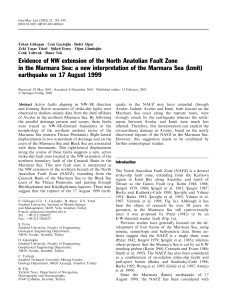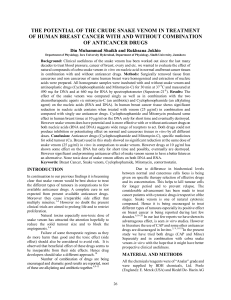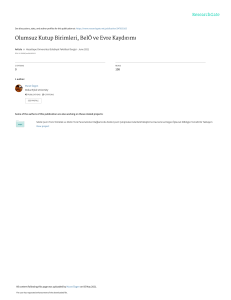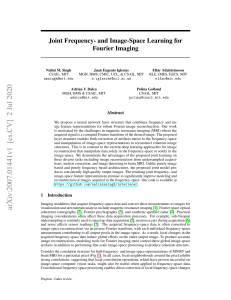Anticancer Extracts or Hemi-Synthesized Starting From
advertisement
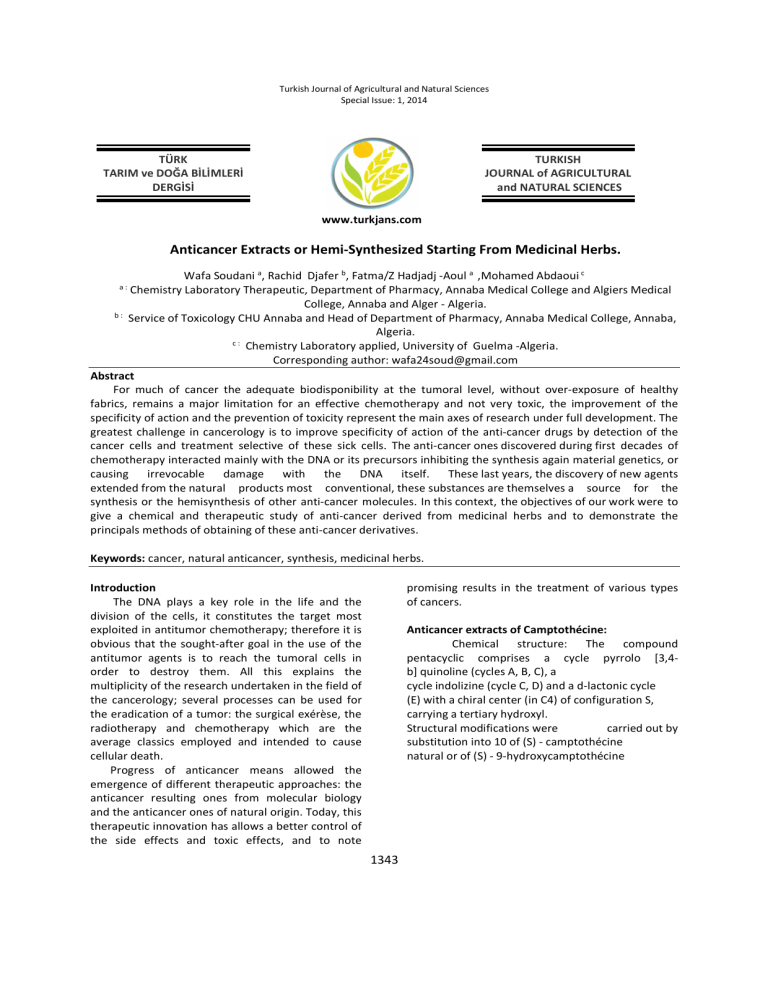
Turkish Journal of Agricultural and Natural Sciences Special Issue: 1, 2014 TÜRK TARIM ve DOĞA BİLİMLERİ DERGİSİ TURKISH JOURNAL of AGRICULTURAL and NATURAL SCIENCES www.turkjans.com Anticancer Extracts or Hemi-Synthesized Starting From Medicinal Herbs. Wafa Soudani a, Rachid Djafer b, Fatma/Z Hadjadj -Aoul a ,Mohamed Abdaoui c Chemistry Laboratory Therapeutic, Department of Pharmacy, Annaba Medical College and Algiers Medical College, Annaba and Alger - Algeria. b: Service of Toxicology CHU Annaba and Head of Department of Pharmacy, Annaba Medical College, Annaba, Algeria. c: Chemistry Laboratory applied, University of Guelma -Algeria. Corresponding author: wafa24soud@gmail.com Abstract For much of cancer the adequate biodisponibility at the tumoral level, without over-exposure of healthy fabrics, remains a major limitation for an effective chemotherapy and not very toxic, the improvement of the specificity of action and the prevention of toxicity represent the main axes of research under full development. The greatest challenge in cancerology is to improve specificity of action of the anti-cancer drugs by detection of the cancer cells and treatment selective of these sick cells. The anti-cancer ones discovered during first decades of chemotherapy interacted mainly with the DNA or its precursors inhibiting the synthesis again material genetics, or causing irrevocable damage with the DNA itself. These last years, the discovery of new agents extended from the natural products most conventional, these substances are themselves a source for the synthesis or the hemisynthesis of other anti-cancer molecules. In this context, the objectives of our work were to give a chemical and therapeutic study of anti-cancer derived from medicinal herbs and to demonstrate the principals methods of obtaining of these anti-cancer derivatives. a: Keywords: cancer, natural anticancer, synthesis, medicinal herbs. promising results in the treatment of various types of cancers. Introduction The DNA plays a key role in the life and the division of the cells, it constitutes the target most exploited in antitumor chemotherapy; therefore it is obvious that the sought-after goal in the use of the antitumor agents is to reach the tumoral cells in order to destroy them. All this explains the multiplicity of the research undertaken in the field of the cancerology; several processes can be used for the eradication of a tumor: the surgical exérèse, the radiotherapy and chemotherapy which are the average classics employed and intended to cause cellular death. Progress of anticancer means allowed the emergence of different therapeutic approaches: the anticancer resulting ones from molecular biology and the anticancer ones of natural origin. Today, this therapeutic innovation has allows a better control of the side effects and toxic effects, and to note Anticancer extracts of Camptothécine: Chemical structure: The compound pentacyclic comprises a cycle pyrrolo [3,4b] quinoline (cycles A, B, C), a cycle indolizine (cycle C, D) and a d-lactonic cycle (E) with a chiral center (in C4) of configuration S, carrying a tertiary hydroxyl. Structural modifications were carried out by substitution into 10 of (S) - camptothécine natural or of (S) - 9-hydroxycamptothécine 1343 Turkish Journal of Agricultural and Natural Sciences Special Issue: 1, 2014 9 10 11 A B 8 O 12 N C 14 6 7 D N 1 5 E 2 4 H 3C O 3 O HO Fig.1: Chemical structure of Camptothécine. Irinotécan, comprising OH phenolic into 9 (carbamate) and a chain ethyl in 11. The sequence pipéridinopipéridine carried by carbamic ester makes it possible to increase the hydrosolubility of éthylhydroxycamptothécine. Le Topotécan is (+)-(4S)-10-[(diméthylamino) méthyl]4-éthyl-4,9-dihydroxy-1Hpyranol[3’,4’ :6,7]indolizino[1,2-b]quinoléine3,14(4H,12H)-dione. C H CH3 N 10 9 O C H H O O N A 8 7 11 B O 12 C N 6 9 14 11 A B 3 O 12 N C 14 6 7 D N 1 5 1 5 E 4 H 3C 10 8 D N , H C l , 3 H 2O 3 N 2 E O 4 3 HO , H C l H 3 O Fig. 2: Chemical structure of Irinotecan C 2 O 3 O H O Fig.3: Chemical structure of Topotécan he o Preparation: The camptothécine is an alkaloid extracted f or the first time from the bark from a Chinese tree, Camptotheca acuminata, then of a tree of t south of India and Taiwan, Nothapodytes faetida Fig.4: Tree of Camptotheca acuminata o Mode of action: The Camptothecine and its derivatives act o n the replication of the DNA; the cut of one of the chains by a topoisomérase allows désenroulement and the the relieving of the propeller of the DNA. Th ese initial stages of the process of replication are normally followed of a welding of the chain broken with formation of a fork of replication and a complete duplication of the molecule of DNA. The Camptothecine and its derivatives cause a stabilization of the cleavable complex normally formed between the DNA and the topoisomérase I, this action induced of the lesions simple-bit of the DNA which block the replication. 1344 Turkish Journal of Agricultural and Natural Sciences Special Issue: 1, 2014 o Fig.5: Site of action of Irinotecan and Topotécan. o Therapeutic use: Irinotécan is used for treatment of colorectaux cancers metastasic after failure of a former treatment by the 5-fluorouracile, while Topotécan is used for treatment of cancer of the repeating ovary. Anticancer synthesized starting from Podophyllotoxine: o Chemical structure: O O O H 3 C O S O O HO O H H O O H O O 4 5 7 O B C 8 2 1 O 11 3 6 A O O D 10 O O 9 O O H 3 OCH CO H 3 3 CO OR R = H R = H O OCH OCH 3 3 E t o p o s id e P + O H T é n ip o s id e P h o s p h a t e d 'é t o p o s id e O Fig.6: Chemical structure of Etoposide and Teniposide Chemical synthesis: Podophyllotoxine is one of the components of podophylline extracts alcoholic coniferous tree from the roots and the rhizomes of various species of podophylle: Podophyllum peltatum .The chemical synthesis of Etoposide is done by use of o Epipodophyllotoxine like a raw material, the chemical synthesis of Teniposide is carried out by substitution of methy group of Etoposide by a thiophene group. 1345 Turkish Journal of Agricultural and Natural Sciences Special Issue: 1, 2014 Etoposide Fig.7: Chemical synthesis of Etoposide. o Relation structure-activity: Influence of the nature of the chain in positi on 4: simple glycosylée chain: D-glucose in position 4 of podophyllotoxine increases the hydrosolubility, the replacement of a β, D-glucose by β.D galactopyranose decreases the activity in vivo and in vitro, it is with the steric obstruction, which prevented the connection with report- isomérase II. The best results have summers obtained af ter condensation with the ethanal which make Etoposide or condensation by 2thiénylcarboxaldéhyde which make Téniposide. o Influence of the modification of the cycle lactone: Trans stereophony- isomerism is fundamental for the stabilization of the cleavable complex with the topo-isomérase II, the complexes cis are inactive. The replace ment of lactone by a lactam of the o Etoposide increases the activity of 10%, the reduction of lactonic group(CO) in (CH2 ) decreases the cytotoxicity on various tumoral lines. The opening of the cycle lactone of Etoposide and Teniposide leads to the inactive acid cis- hydroxy. Anticancer extracts of Taxane : o Chemical structure: Structure complexes class of Taxane. 1346 Influence of the modification of cycle a: The grouping méthylènedioxy of cycle A is essential for the activity, its replacement by 2groupings methoxyl, hydroxyl or by a func tion thiocarbonyle led to molecules of low toxicity in vitro, inactive on L1210 in vivo. Influence of the nature of the substituents of the cycle E: Derivatives 4'-demethylated are slightly more active that the not demethylated compounds, the cytotoxic activity of the inhibitors of the topoisomerase II seems dependent the presence of hydroxyl into 4’. Mode of action: Inhibition of reportisomérase II, enzyme allowing the transcription and the replication of the DNA, the blocking of the cellular division is carried out at a stage earlier than for the poisons of the spindle. Therapeutic use : Etoposide is used for treatment of disease of Hodgkin and lymphomas not Hodgkin, solid tumors, acute myeloid and lymphoblastic leukemia, while Teniposide is used for treatment of cancers of the testicule, the bronchi with small cells, breast cancer. Turkish Journal of Agricultural and Natural Sciences Special Issue: 1, 2014 2 R O -O O H C H 10 9 3 11 H R 1 3 C 3' 1' 3 3 1 3 17 2 O H H O O H 5 4 14 O 6 8 16 C H 15 13 2' 7 C H 12 O -NH O O C H 3 O O O O P a c lit a x e l : R 1 = R 2 = C H O D o c é ta x e l : R 1 = H 3 C O C H C H 3 R 2 = 3 H 3 Fig.8: Chemical structure of Paclitaxel and Docétaxel. o Relation structureactivity: complex of the class of the taxane whose activity depends on the presence of a skeleton taxene of the type polyoxygéné methanobenzocyclodecene, coupled cycle oxétane in position 4 and 5 and one site chain carrying the function ester out of carbon 13. o Preparation: Paclitaxel was isolated from the barks of the Yew of the pacific (Taxus brevifolia).Currently, these derivatives are obtained by hemisynthesis starting from the baccatine III or the 10-désacétylbaccatine III after extraction of the needles of the yew of various origins (Taxus baccata) more available than the barks necessary to the extraction. The paclitaxel is the derivative of the yew of the Pacific whereas the Docetaxel is the derivative of the European yew. Fig.9: Yew of the pacific (Taxus brevifolia). o o Mode of action: Block the cellular replicatio n by inhibing the depolymerisation of the tubuline and by increasing its polymerization, which would make it possible to decrease the resistance of certain cancers the other anti-cancer ones. Therapeutic use: Paclitaxel is used for treatment of ovarian cancers metastases, in the event of failure of derived from platinum, while Docetaxel is used for treatment of breast cancer metastases in the patients pretreated with the anthracyclines. o o 1347 Anticancer Alkaloids of the Periwinkle: Chemical Structure: dimerous alkaloids indolic,comprising fragm ent velbénamine and a fragment vindoline. Turkish Journal of Agricultural and Natural Sciences Special Issue: 1, 2014 Vinblastine Vincristine Fig.10: Chemical structure of Alkaloids of Periwinkle. o Mode of action: They act by connection o Preparation: Drugs extracted from with dimerous tubuline by inhibiting the plant Periwinkle of Madagasca, Cataranthus Polymerization, the assembly of the microtubules is roseus, this plant blocked and consequently the cellular division. belonged to the family of Apocynacées. Fig.11: Periwinkle of Madagasca (Cataranthus roseus) References : o Therapeutic use: Vinblastine is used for 1. F. Pieri, S. Kirkiacharian. Pharmacologie et treatment of disease of Hodgkin, lymphomas not thérapeutique. 2ème Edition Ellipse, Paris, Hodgkin, breast cancers, cancer of the ovary, cancer of the testicle, syndrome of Kaposi, (1992). choriocarcinomists, while Vincristine is used for 2. J.D. Brion, J. Couquelet .Traité de Chimie treatment of leukemia acute, disease of Hodgkin, thérapeutique. Edition Lavoisier Paris lymphoma not Hodgkin, neuroblastome, tumor of (2003). 3. G .L. Patrick. Chimie pharmaceutique .Edition De Wilms, sarcoma of Ewing. Boeck, Paris, Bruxelles, (2003). Conclusion: 4. L. Brunton, K.L. Parke. Goodman and Gilman’s Significant number of anticancer drugs Manuel Of Pharmacology and available with various mechanisms of action and Therapeutics. Edition Mc Graw-Hill, New York, multiple possible therapeutic methods; used only or (2008). in combination according to the histological type, of 5. M. Schorderet et coll. Pharmacologie des the stage and the condition of the patient. Choice of concepts fondamentaux aux applications the therapeutic strategies is based on a primary Thérapeutiques. 3éme Edition Frison Roche, empirical advance, the evolution towards a greater (1998). specificity and a less great toxicity is based on 6. R.S. Vardanyan, V.J. Hruby. Synthesis of essential elements of natural origin. drugs. Edition Elsevier, Paris (2006). The contribution of recent discovered the 25 7. Serge Kirkiacharian. Guide de Chimie médicinale last years results in new specific drugs of cancer et médicaments. Edition Lavoisier Paris (more than 100 ),for a great part; those are of (2010). natural origin, they are especially active in 8. www.eurocancer.com. partnership with the cytotoxic classics of chemical 9. www.inrs.fr . origin. Large field of investigation remains open in 10. www.sciencedirect.com biological and botanical fields, little explored in associations of targeted drugs, ignored by pharmaceutical industry. 1348


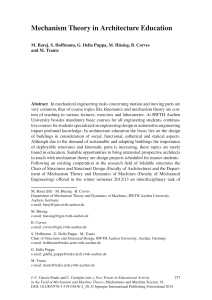
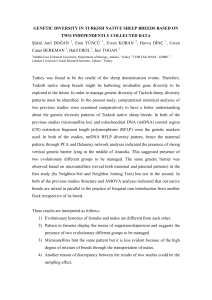
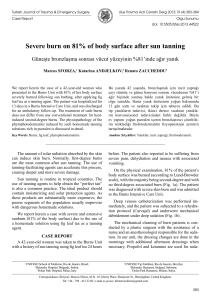
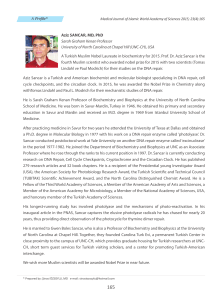
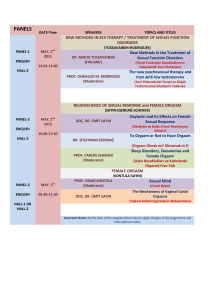
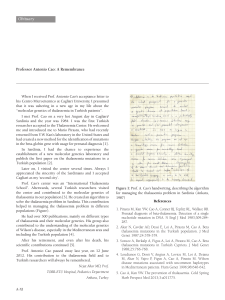
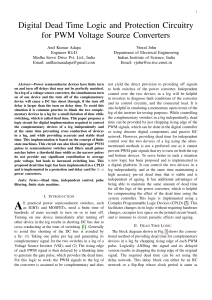
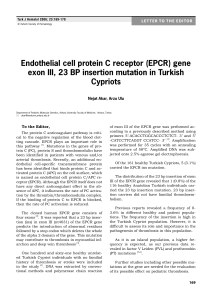
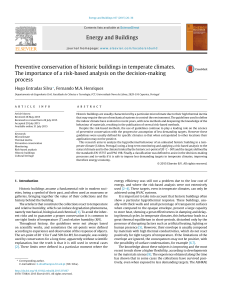
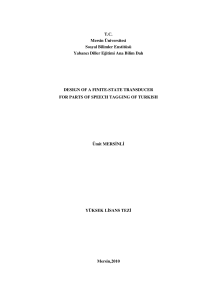
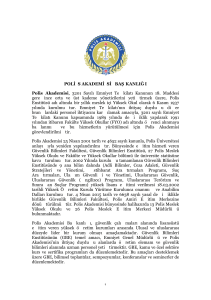
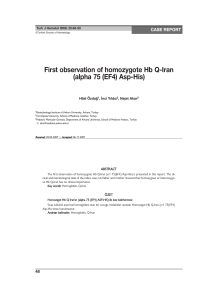

![First observation of Hb D-Ouled Rabah [beta19(B1)Asn>Lys] in the](http://s1.studylibtr.com/store/data/003346881_1-fc6465a17750760535fb52bbef4ddf81-300x300.png)

